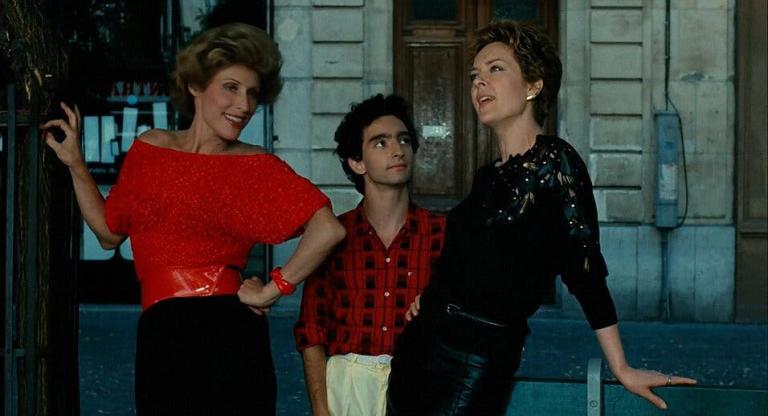Sunset Park is one of Brooklyn’s last industrial waterfronts, providing stable blue collar jobs for immigrant and working-class families in the neighborhood for generations. Their fight against Industry City’s rezoning efforts presents a stark portrait of the competing forces shaping urban life around the globe: corporate greed and community resilience. Through thoughtful observation, Jay Arthur Sterrenberg and Kelly Anderson’s documentary Emergent City (2024) refuses to dictate emotion, inviting its audience to witness the tension between a billion dollar real estate giant seeking further profit and a working-class neighborhood fighting to sustain itself. This conflict is centered on who gets to define progress: developers rebranding displacement as innovative renewal, or communities demanding climate justice, affordable housing, and respect for their culture.
After Hurricane Sandy devastated the area in 2012, Jamestown Properties—the primary corporate entity behind Industry City—seized the opportunity to “reactivate” the space with rhetoric touting transformation. In practice, the area was sterilized into a mall-like complex with $700/month co-working memberships and adult coloring book stations that cater to wealthy transplants. During talking-head interviews, Jamestown representatives and their tenants smile into the camera and wax poetic about creating a “sense of place,” treating their interviews like a marketing campaign for a soulless, profit-driven enclave wholly disconnected from Sunset Park. They epitomize the hollow nature of the creative economy promoted by Industry City, erasing the neighborhood’s Latino and Asian cultural fabric in favor of homogenized consumerism.
The community is frustrated by this and recognizes it as a threat. For them, rezoning isn’t just about land use. It’s about survival. Rising rents, aggressive landlords, and the erosion of industrial jobs would displace generations of families. Industry City’s representatives were dismissive, deflecting their legitimate concerns with marketing jargon and buzzwords while refusing to disclose their profit projections. Their condescension mirrors the broader arrogance of developers who treat neighborhoods as investment opportunities instead of people’s homes. Emergent City lays bare this dynamic, observing the ways power and capital move through the complex civil processes that reshape the places we live. It lingers on heated meetings and the endless hours labor organizers pour into resisting displacement, making a dry bureaucratic process quite engaging without shying away from its complexities.
Adding insult to injury, Jamestown greenwashed their development plans, claiming sustainability while rejecting a multitude of community benefits that would cultivate true climate resilience in Sunset Park. Residents and community-led organizations like UPROSE advocated to move the neighborhood’s extractive industrial economy toward renewables. Their vision prevailed. The backlash was so strong that Industry City withdrew their rezoning bid and, in 2024, the South Brooklyn Marine Terminal began repurposing itself into the nation’s largest offshore wind port. It’s projected to power millions of homes and create thousands of union jobs in the clean energy economy.
Sunset Park’s victory proves that development doesn’t necessarily mean displacement. Their alternative plan centering climate infrastructure, local hiring, and cultural preservation rebuked Industry City’s extractive model. The film lingers on the neighborhood’s working-class rhythms: the quiet dignity of industrial façades, the hum of its stoops and sidewalks, children climbing trees at a hillside park with a view of the distant Manhattan skyline, eerily reminiscent of Williamsburg before luxury towers swallowed up its waterfront. Captured with patience, these slice-of-life moments ground the neighborhood’s political struggle in the textures of daily life and survival. This depiction is a testament to the power of grassroots organizing, and the film’s restrained approach underscores this message: change isn’t handed down to us by billion dollar corporations, it’s won by communities.
Emergent City closes with a quiet challenge, reminding us that New York’s strength lies within its people. It is a dense, necessary examination for organizers and anyone invested in the fight against displacement across the country: showing not just what’s at stake, but how we can build a better future for cities everywhere.
Emergent City screens this evening, July 8, and on July 9 and 11, at Maysles Documentary Center. All screenings will be followed by discussions between directors Kelly Anderson and Jay Arthur Sterrenberg alongside urban scholar Andy Battle.



